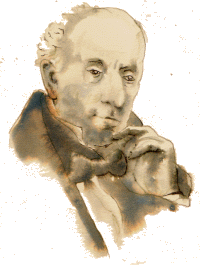Haiku has become popular throughout the contemporary world, not just in the English-speaking part of it, let alone just in Britain.
The British haiku "guru", R H Blyth (1898–1964) offered an explanation for this. His Zen in English Literature and Oriental Classics (1942) claimed that Zen was a universal spirit, and haiku was the kind of poetry that responded to this spirit best.
Seamus Heaney asserts that "English and Japanese sensibilities respond in similar ways to the natural world", and without feeling any need to connect this to Zen, stresses Wordsworth's ability to "absorb the atmosphere of [a] place".
|
 | |
| | |
|
| “ |
Our steeds remounted, and the summons given,
With whip and spur we by the chantry flew
In uncouth race, and left the cross-legged knight
And the stone abbot, and that single wren
Which one day sang so sweetly in the nave
Of the old church that, though from recent showers
The earth was comfortless, and, touched by faint
Internal breezes, from the roofless walls
The shuddering ivy dripped large drops, yet still
So sweetly mild mid the gloom the invisible bird
Sang to itself that there I could have made
My dwelling place... | „ | |
Wordsworth,
The Prelude
|
| |
| | |
|
|
Heaney also draws attention to un-Japanese characteristics of Wordsworth's approach, however: "In this Romantic period, poetry in English typically allows itself greater scope for commentary and elucidation ... The dripping ivy, the roofless walls, the song of a single wren: a Japanese poet is likely to have been content with those elements of the scene."
|
| | |
|
| “ |
Only some spires of bright green grass
Only some spires of bright green grass
Transparently in sunshine quivering. | „ | |
|
Emily Brontë
|
| |
| | |
|
|
 |
|
